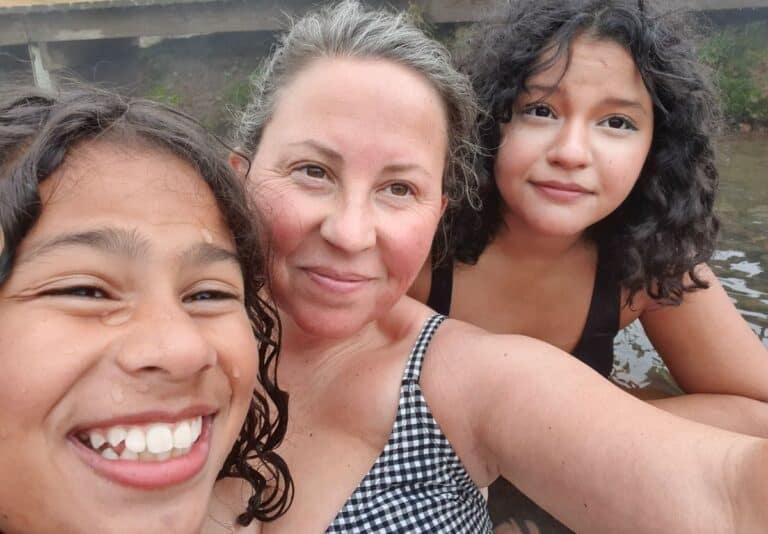
From school walkouts to social media revolutions, Gen Z has already left their mark—so when exactly does this generation begin and end? Whether you’re raising a Gen Z teen, teaching one, or just trying to understand this generation, this guide will give you more than just a number range. It will help you understand what defines this generation and how to better connect with the teens you’re parenting, teaching, or mentoring.
What Year Does Gen Z Start?
Most researchers agree Gen Z begins around 1996 or 1997. Pew Research, for example, uses 1997 as the starting point. This marks the beginning of a generation that has never known a world without the internet.
What Year Does Gen Z End?
The end of Gen Z is less agreed upon, but it’s commonly placed around 2012. Some experts extend it to 2013. Kids born after this are generally considered part of the next generation: Gen Alpha.
In short? It’s not an exact science—because people don’t change overnight when the calendar flips. Generational lines are more about shared experiences than hard dates.
Ages of Gen Z Now
As of 2025, Gen Z ranges in age from about 13 to 29 years old, depending on the exact birth years used. That means Gen Z includes middle schoolers, high schoolers, college students, and young adults in the workforce.
What Generation Comes After Gen Z?
The generation that follows is known as Generation Alpha. These are children born from around 2013 to 2024, growing up with smart speakers, AI tools, and even more immersive tech than Gen Z.
What Generation Came Before Gen Z?
Before Gen Z came the Millennials, born roughly between 1981 and 1995. Millennials were the first digital adopters—Gen Z became digital natives.
Quick Generational Breakdown:
- Baby Boomers: 1946–1964
- Gen X: 1965–1980
- Millennials: 1981–1995
- Gen Z: 1996–2012
- Gen Alpha: 2013–2024
Global Events That Shaped Gen Z’s Worldview
Global events have played a significant role in shaping Gen Z’s identity:
- 9/11 and the War on Terror (2001–present): While younger Gen Z may not remember these events, they grew up in the aftermath, which shaped global politics and security.
- The Great Recession (2008–2009): Many kids witnessed their families struggling financially, which influenced their values around money and stability.
- The rise of smartphones and social media (late 2000s–2010s): This shaped how Gen Z communicates, connects, and consumes information.
- Mass school shootings and lockdown drills (2000s–present): These deeply impacted their sense of safety and community.
- Black Lives Matter and racial justice movements (2013–present): These shaped their understanding of inequality and activism.
- Climate change activism and extreme weather events (2010s–present): Gen Z sees climate change not as a future issue, but as their lived reality.
- COVID-19 pandemic and remote schooling (2020–2022): This disrupted education, work, and social lives, with lasting impacts on mental health and adaptability.
- The rise of political polarization and protest culture (2016–present): Gen Z came of age during a time of deep political division and global unrest.
These experiences have made Gen Z more globally aware, politically engaged, and emotionally attuned than generations before.
What Defines Gen Z?
Digital Natives: Gen Z grew up online. From YouTube to TikTok, they’ve always had access to information at lightning speed.
Diversity & Inclusion: Gen Z is the most racially and ethnically diverse generation in U.S. history.
Mental Health Matters: Gen Z is more likely than previous generations to talk openly about anxiety, depression, and therapy. For them, mental health isn’t taboo—it’s something they discuss, normalize, and prioritize. It’s woven into how they talk about school, relationships, and identity, making it one of the defining conversations of their generation.
Politically Aware: This generation is socially conscious, progressive, and ready to organize. From climate strikes to Black Lives Matter marches, Gen Z has made their voice heard. In fact, they helped lead and organize March for Our Lives after the 2018 Parkland shooting, creating one of the most impactful youth-led movements in recent history.
Independent Thinkers: They’re skeptical of traditional systems, including college, capitalism, and the 9-to-5 grind. Many are turning to entrepreneurship, content creation, and non-traditional careers.
Gen Z vs. Millennials: What’s the Difference?
- Tech: Millennials remember dial-up. Gen Z doesn’t.
- Social Media: Millennials were on Facebook in college. Gen Z considers it for “old people.”
- Pop Culture: Millennials had Harry Potter. Gen Z has Euphoria.
- Money: Millennials chased homeownership. Gen Z is wondering if the planet will still be habitable.
Both generations care deeply, but they show it differently. While Millennials paved the way for wellness culture and social justice awareness, Gen Z has taken that torch and turned it into a protest sign and a meme.
How Understanding Gen Z Helps You Parent Better
Knowing what drives Gen Z can help you build stronger relationships with your teen. Try these:
- Don’t confuse emotional depth with fragility. They’re emotionally fluent and self-aware in ways older generations were never encouraged to be.
- Let them teach you something. Whether it’s a new app or a new perspective, inviting their voice builds mutual respect.
- Support their activism. Whether they’re attending marches, organizing online petitions, or raising awareness through viral trends, Gen Z uses the tools they know to fight for the issues they care about.
- Accept their digital lives. From friendships to identity to activism, so much of their world happens online. It’s not “just a screen”—it’s a reflection of their real, connected lives.
Global Gen Z: Are Teens the Same Everywhere?
While Gen Z in the U.S. is shaped by school shootings, student debt, and polarization, teens globally face their own realities. Yet they share many traits: digital connectedness, progressive values, and a drive to change the world.
In South Korea, Gen Z is redefining gender roles. In Nigeria, they’re leading the charge against police brutality. In Sweden, they’re organizing climate protests. Greta Thunberg became the face of a global climate movement before she turned 18. The platforms may differ, but the passion is global.
Gen Z’s Future: What’s Next for This Generation?
They’re growing up in a world on fire—literally and figuratively. And yet, they’re hopeful. They’re launching small businesses on Instagram, advocating for climate change policy, and reimagining what success looks like.
Expect them to:
- Prioritize purpose over paycheck
- Seek flexibility in work and life
- Redefine education, identity, and success
Wrap Up: Gen Z Years & What it Means
Gen Z may be hard to define, but they’re easy to admire. They’re organizing walkouts, demanding justice, and refusing to stay quiet—even as the world around them grows louder with threats.
If you’re raising a Gen Z teen, you’re not just parenting a kid—you’re parenting a force for change. And while the future doesn’t always feel amazing, especially in a political climate that sometimes feels terrifying, Gen Z is fighting to make it better. That matters.






